"The Cinematic Futurity" Film Science and Technology Section Successfully Held at the 14th BJIFF
From April 19 to 22, "The Cinematic Futurity" Film Science and Technology Section as part of the 14th Beijing International Film Festival (BJIFF), guided by the BJIFF Organizing Committee and hosted by the Institute of Film, Television and Theatre, Peking University, with exclusive academic support from the Beijing Academy of Artificial Intelligence, took place with resounding success at Langyuan Station in Beijing.
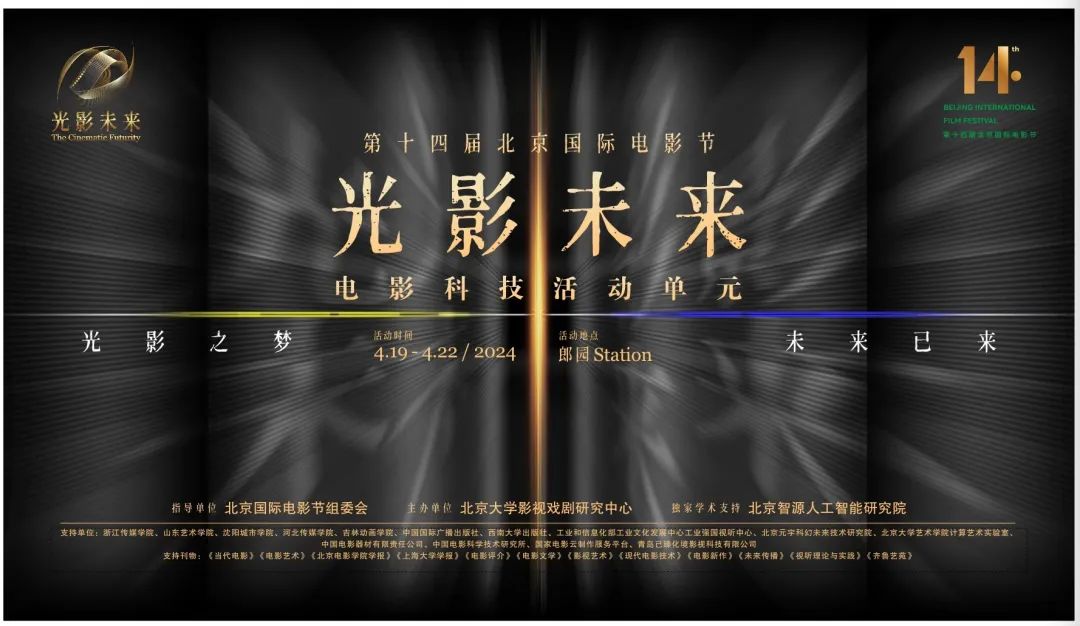
"The Cinematic Futurity" Film Science and Technology Section
Spanning four days, the event brought together industry luminaries from film, technology, and education to delve into the influence of artificial intelligence (AI) and cutting-edge technology on the world of cinema. Organized into four major sectors, the event featured a red carpet gala; 20 film technology sessions; an offline technology exhibition with a film-themed show; and seven academic activities that included scholarly presentations by 21 experts and 15 engaging roundtable discussions. Nearly 300 guests, experts, scholars, and creators gathered together to participate in this series of activities, contributing top-tier content presentations and informative expressions. The event drew audiences from all walks of life, including college students, technology professionals, film and television practitioners, and movie fans from all corners of the country.
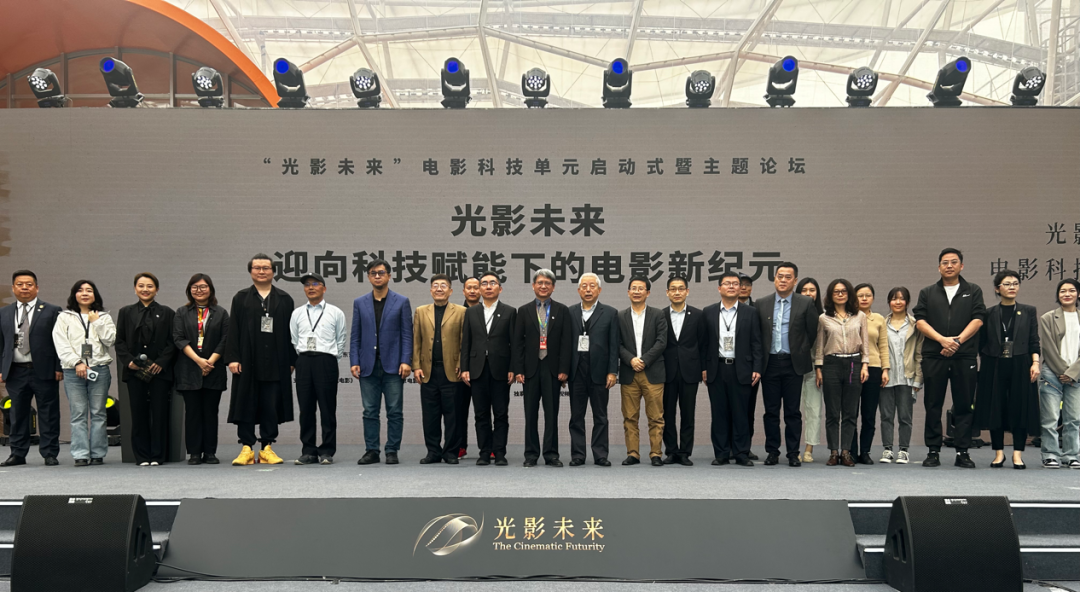
Launch Ceremony of "The Cinematic Futurity" Film Science and Technology Section & the main forum titled "The Cinematic Futurity—A New Cinematic Era Empowered by Technology"
On the morning of April 19, the launch ceremony of "The Cinematic Futurity" Film Science and Technology Section & the main forum titled "The Cinematic Futurity—A New Cinematic Era Empowered by Technology", arrived as scheduled at Central Station, Langyuan Station. Prof. Chen Xuguang, the chief planner of "The Cinematic Futurity" Film Science and Technology Section, delivered the opening address, while Hu Yue, the planner of the section, served as the emcee for the occasion. Bian Jian, Deputy Editor-in-Chief of Beijing Radio & Television Station, Yan Shaofei, Deputy Secretary of the Leanding Party Members Group and Secretary General of the China Film Association, Ren Yuzhong, member of the Standing Committee of the CPC Party Committee and Vice President of Peking University, Peng Feng, Professor and Dean of the School of Arts, Peking University and a scholar included in the Changjiang Scholars Program, and Zhang Yuqing, President of China Media Publishing House and China International Broadcasting Press, delivered passionate speeches, expressing their deep appreciation for the BJIFF Organizing Committee, Institute of Film, Television and Theatre, Peking University, and Beijing Academy of Artificial Intelligence, for their keen insights into the pulse of the times and technological trends. Following that, a opening ceremony was held for two highly anticipated book series. One was the series showcasing the outstanding results of the National Social Science Fund of China's major finished project on the "Research on the Integration of Film and Gaming", which was funded by the National Publication Fund. The other was the official debut of the Blue Book of China Film & Blue Book of China TV Series 2024, which have now entered the readers' field of vision. Prof. Chen Xuguang, the chief expert of the "Integration of Film and Gaming" research project, and Prof. Fan Zhizhong, the co-editor of the Blue Books, each delivered a presentation on the respective book series and presented copies of the Blue Book of China Film & Blue Book of China TV Series to the BJIFF as a gift.
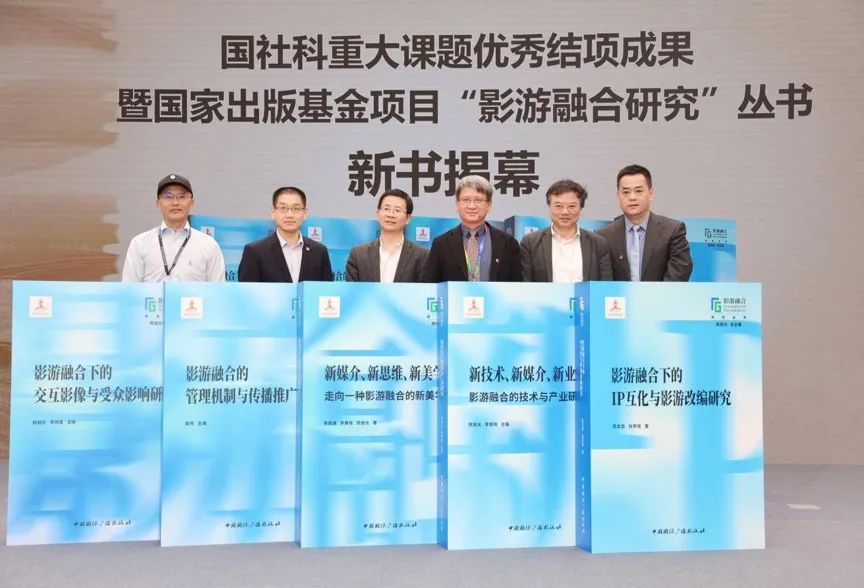
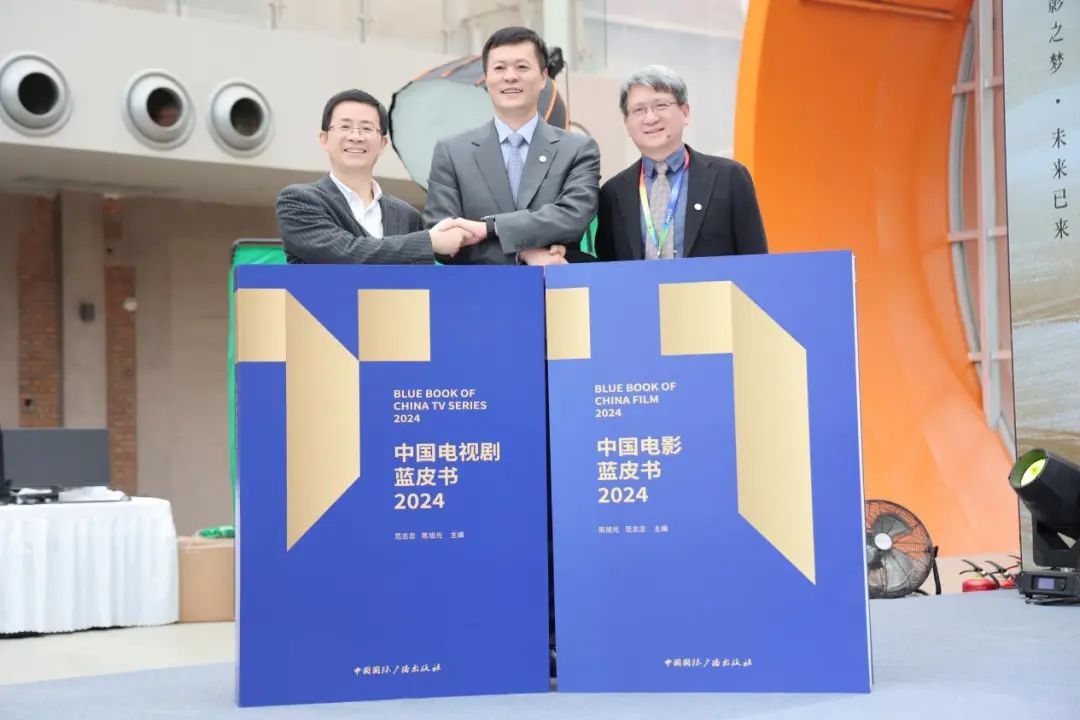
Prof. Chen Xuguang and Prof. Fan Zhizhong presented books as a gift to Mr. Bian Jian representing the BJIFF Organizing Committee
The subsequent academic lecture session covered several hot topics, including "Epiphany of AI and Intelligent Production" given by Prof. Wang Tengjiao, "Shadows Under the Sun: Ethical Interpretations of Technology in Film "by Research Fellow Jia Leilei, and "Advancements in Artificial Intelligence Technology for Generating Visual, Written, and Audio Content" by Dr. Wu Dayong, Executive Director of iFlytek Beijing Research Institute. Alongside the academic lectures, the roundtable dialogue session also garnered significant attention. Experts from Peking University, Zhejiang University, Beijing Normal University, Beijing Film Academy, Shanghai Theatre Academy, and the China Film Critics Association engaged in discussions on "Research on the Integration of Film and Gaming, Aesthetics Theory of the Film Industry, and the Development of Chinese Film School." The dialogue revolved around exploring the way of integration between the film and gaming industries, as well as the future development direction of the Chinese film school.
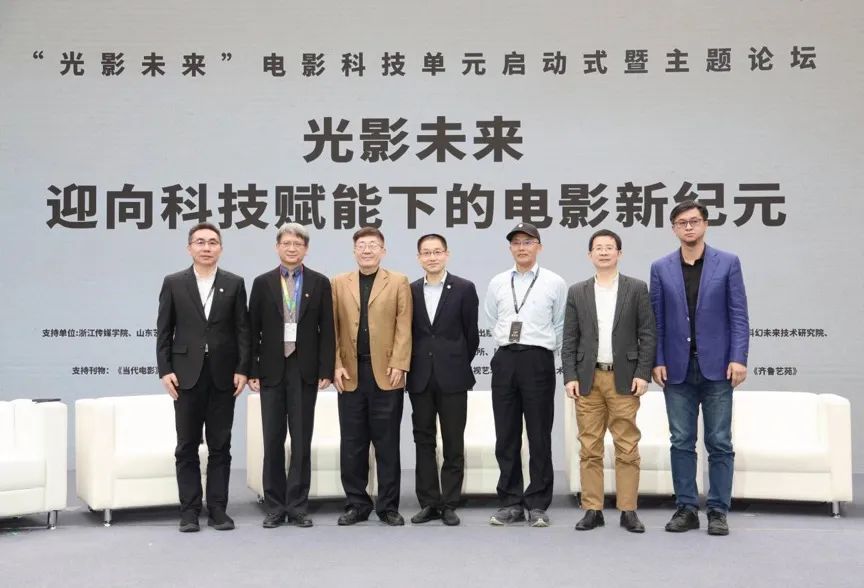
Scene of the launch ceremony and main forum
Following the conclusion of the launch ceremony, the Film Tech Red Carpet Gala, themed "A Film about Future", took place on the afternoon and evening of April 19. Mr. Chen Xiang, Vice President of Beijing Radio & Television Station, and Mr. Ke Bin, Director-General of the Department of Communication and Promotion at the Industrial Culture Development Center of MIIT, delivered the opening remarks for this innovative gala event. Breaking away from the traditional red carpet gala format, this red carpet gala witnessed the enthusiastic participation of dozens of technology and film & TV enterprises. Behind-the-scenes film workers took to the red carpet as Langyuan Station created a three-dimensional visual stage. By integrating technology with film IPs, literary IPs, and animated IPs, the event showcased an innovative process spanning the entire spectrum, providing the audience with an immersive encounter of the cutting-edge fusion between AI technology and the film industry.
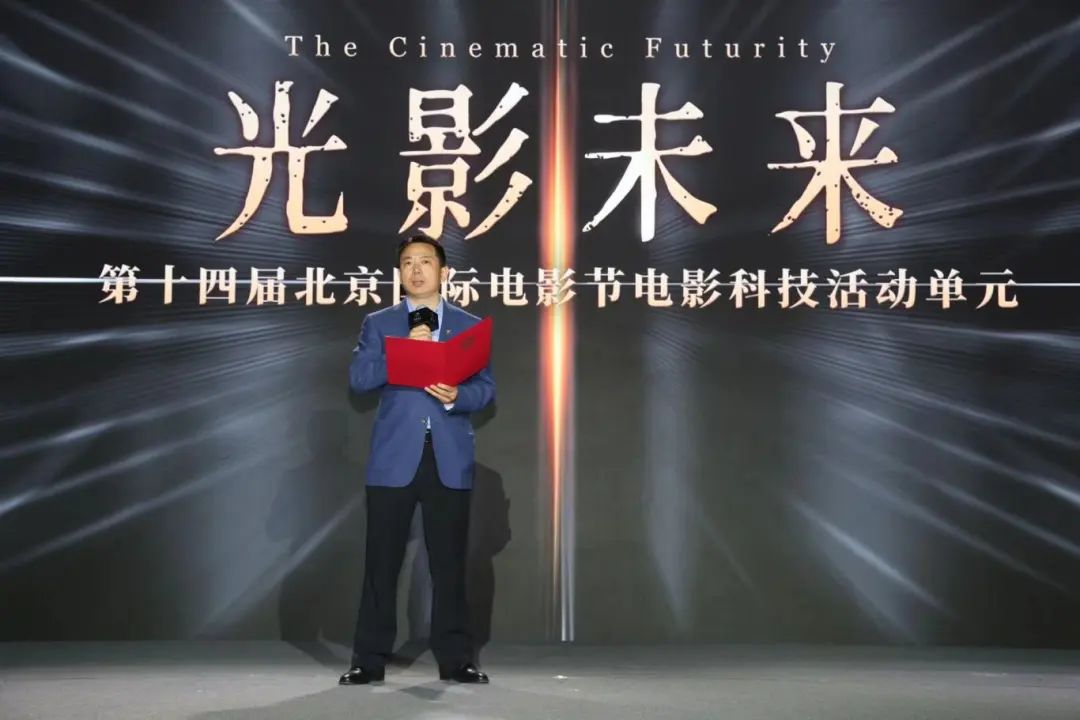
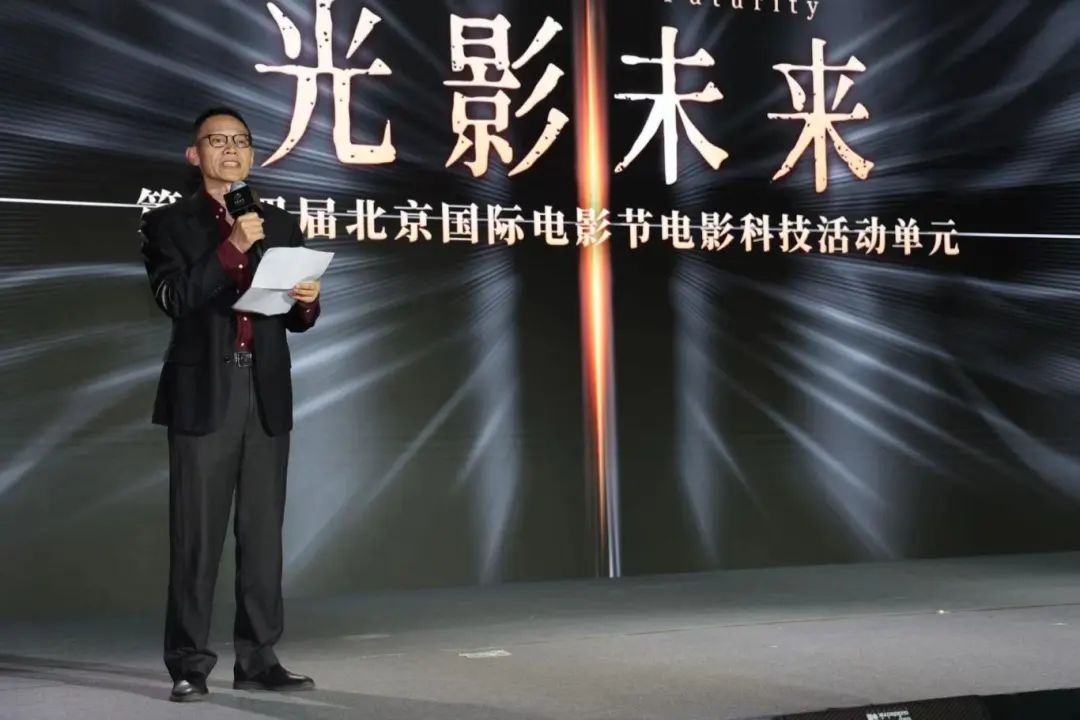
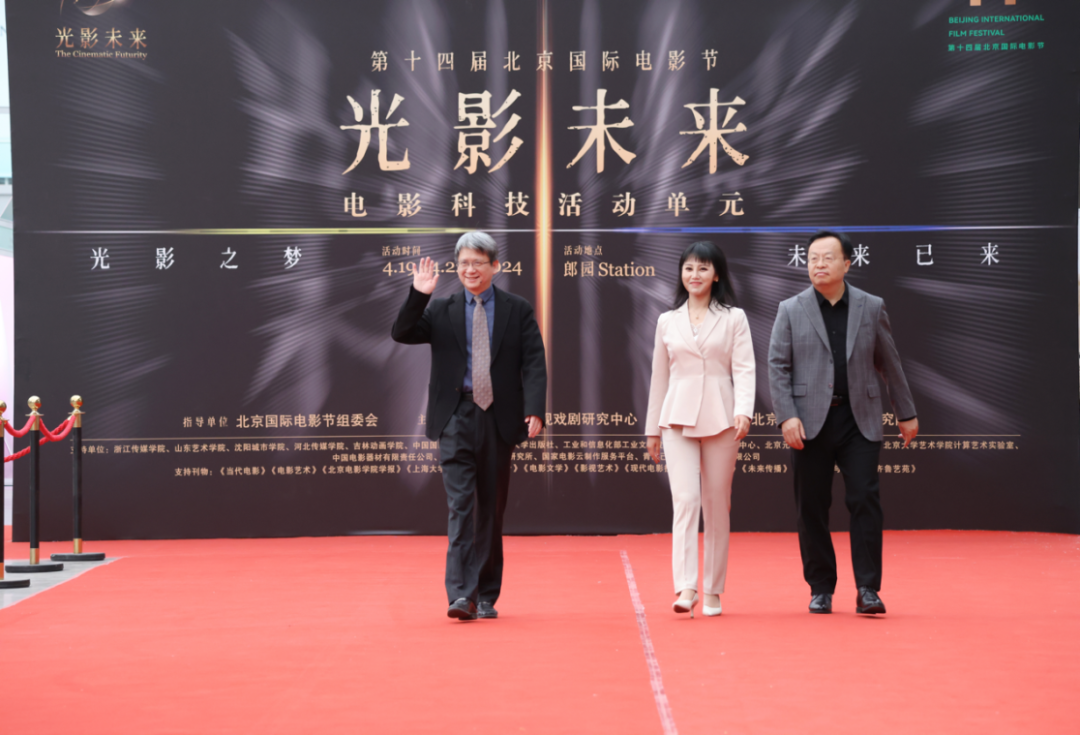
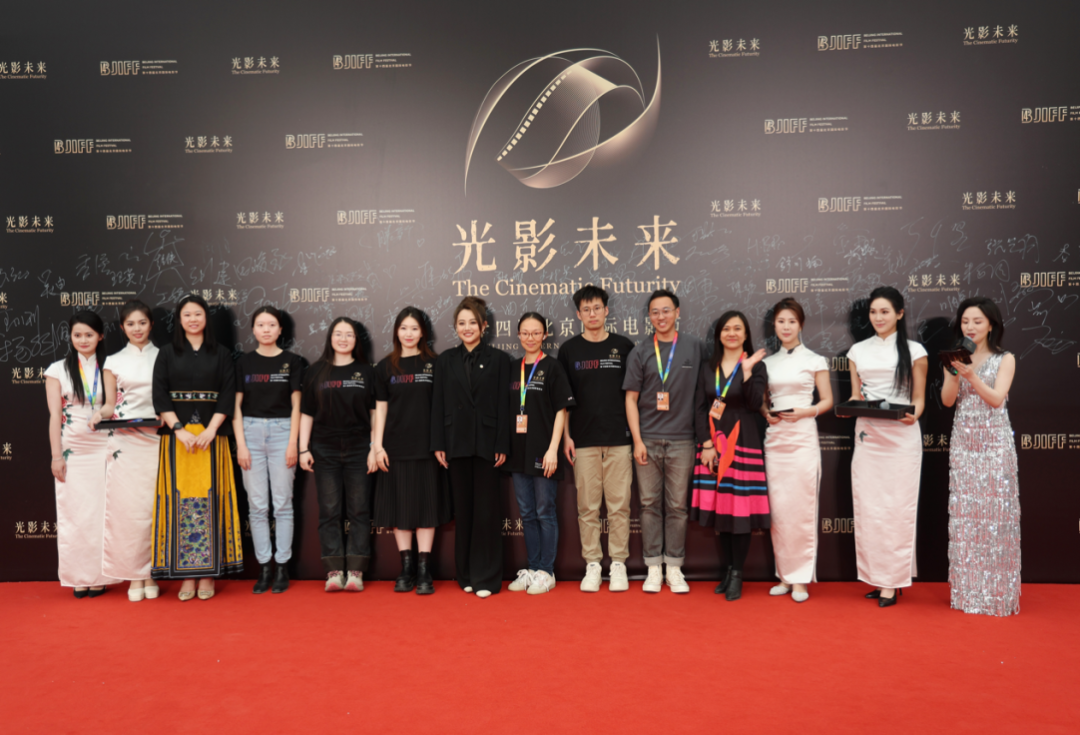
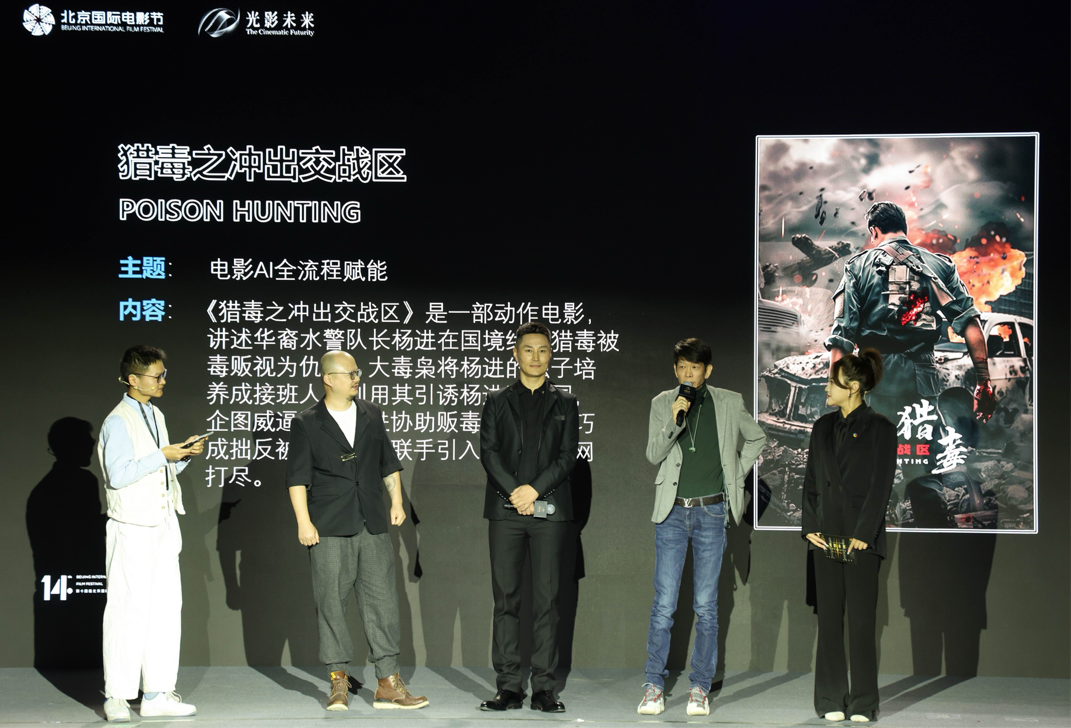
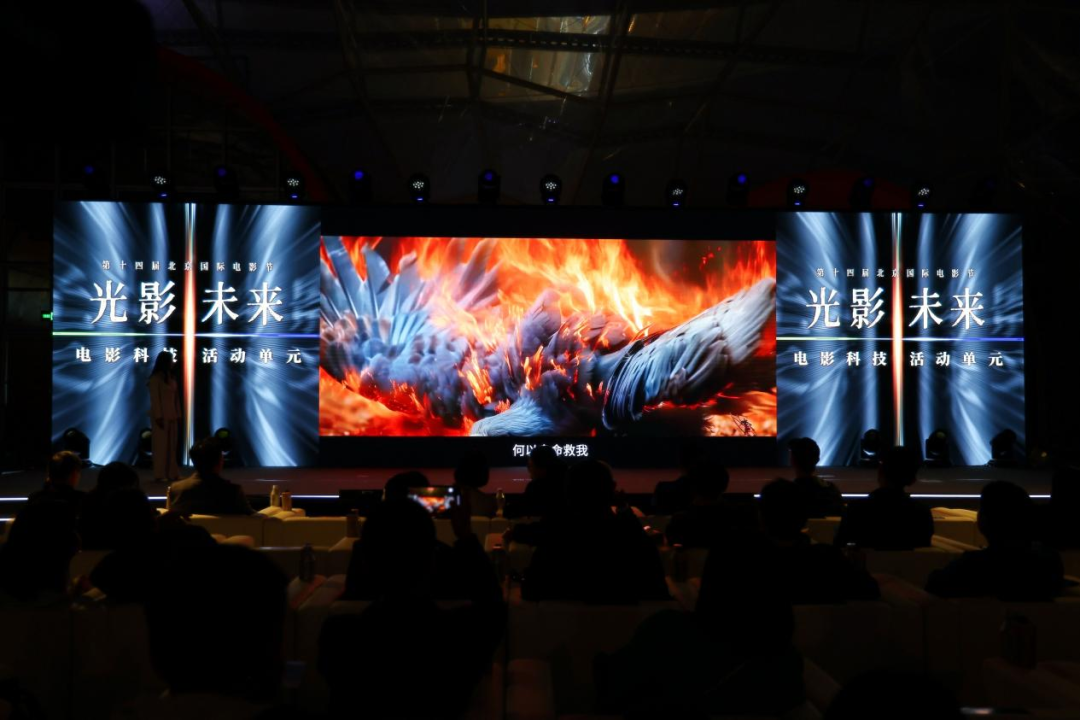
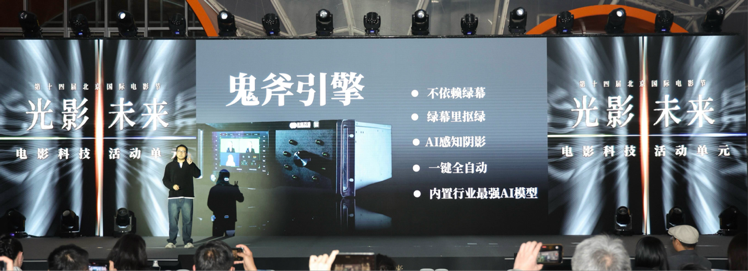
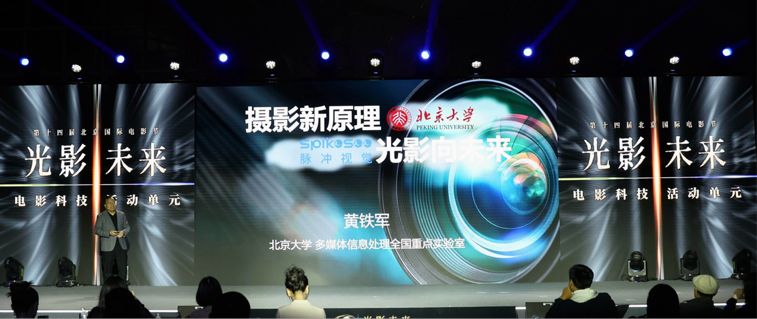
Scene of the Film Tech Red Carpet Gala
Meanwhile, "The Cinematic Futurity" Film Tech Red Carpet Gala was fully recorded and will be aired online on a yet-to-be-announced date.
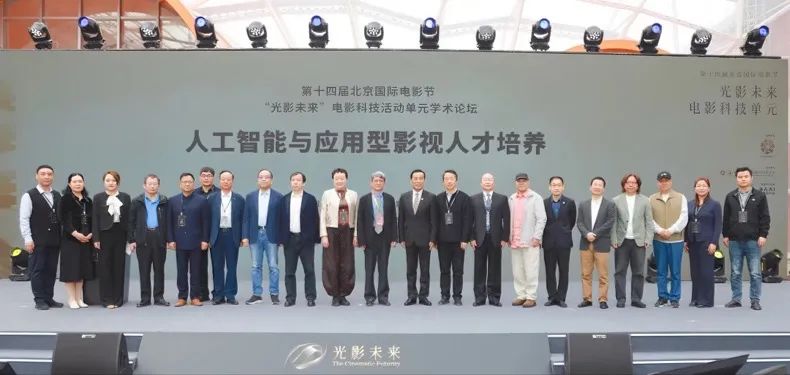
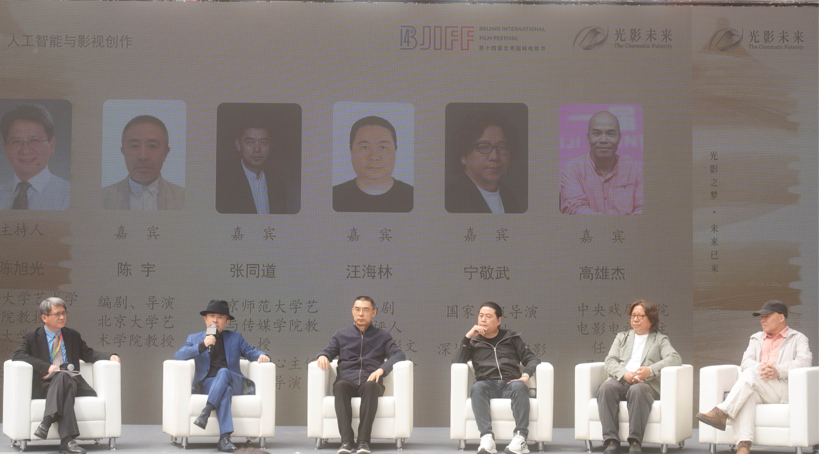
Scene of the academic activity titled "AI and Training of Applied Film and Television Talents"
On the morning of April 20, the academic activity titled "AI and Training of Applied Film and Television Talents", hosted by the Institute of Film, Television and Theatre, Peking University in collaboration with the Hebei Institution of Communications, was successfully held, where Prof. Chen Xuguang delivered the opening address. Zhang Pimin, former Deputy Head of the National Radio and Television Administration and Chairman of the China Film Foundation, Jiang Ping, a renowned film director, producer, and President of the China Xia Yan Film Association, and Li Jinyun, Professor and President of the Hebei Institute of Communications, delivered speeches at the event. Dr. Zhang Linxuan, a research fellow from Tsinghua University, Liu Da, the Chief Engineer of the China Research Institute of Film Science & Technology, and Li Xingguo, Vice President of the Hebei Institute of Communications, delivered insightful keynote speeches on the application and practice of artificial intelligence technology in social digital transformation, as well as the training of talents in the film and television industry. Scholars from Peking University, Zhejiang University, Beijing Normal University, the Chinese National Academy of Arts, the Central Academy of Drama, Shanghai Theatre Academy, and the Hebei Institute of Communications engaged in heated intellectual debates alongside creators working on the ground and engineers on the two roundtable topics, namely "AI and Training of Applied Film and Television Talents" and "Artificial Intelligence and Film & TV Creation". These discussions created an exhilarating atmosphere during the event.
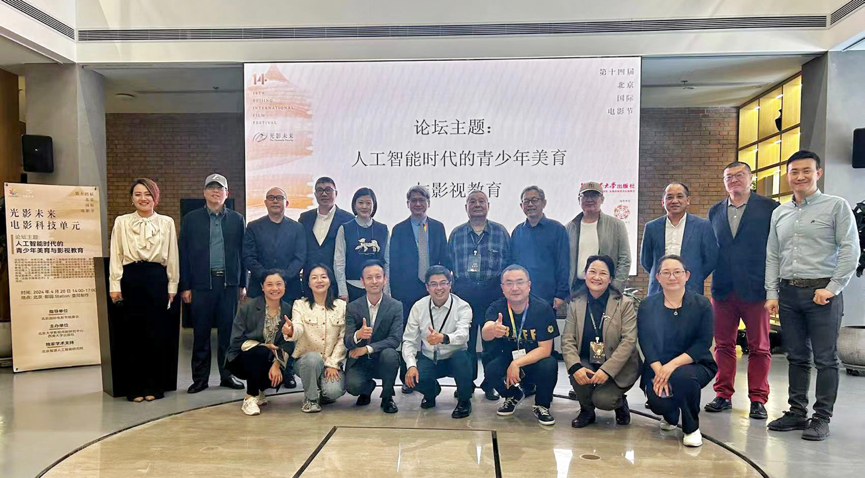
Scene of the academic activity titled "Art, Film and Television Education of Teenagers in the AI Era"
On the afternoon of April 20, the academic event titled "Art, Film and Television Education of Teenagers in the AI Era", hosted by Institute of Film, Television and Theatre, Peking University in partnership with Southwest University Press, was successfully held. Prof. Chen Xuguang delivered the opening address, followed by guest speeches from Hao Rong, Deputy Secretary of the Party Committee and President of the Central Academy of Drama, Huangfu Yichuan, Editor-in-Chief of Contemporary Cinema from the China Film Art Research Center, Liu Pei, Professor and Head of the Music Group for Art Curriculum Standards for Compulsory Education at the China Conservatory of Music, Wang Bing, Assistant Principal and Director of the Art Center at the Affiliated High School of Peking University, and Zhang Fajun, Research Fellow, Executive Dean of the Textbook Research Institute, Southwest University, and President of Southwest University Press. In 2022, the Ministry of Education issued the new version of the curriculum standards for art education, introducing three new courses in the field of arts: "Film & Television (Incl. Digital Media Arts)", "Dance", and "Drama (Incl. Traditional Chinese Opera)". In this context, Southwest University Press joined forces with renowned experts in the field, including Prof. Du Yaxiong from the China Conservatory of Music, Prof. Hao Rong from the Central Academy of Drama, Prof. Chen Xuguang from the School of Arts at Peking University, and Prof. Jiang Tiehong from the Minzu University of China College of Dance to embark on the development of new textbook materials. This forum centered around the topics of "How to Cultivate Artistic Literacy in Teenagers in the Internet Age" and "Media Literacy and Film & TV Skills Education". Distinguished experts in attendance engaged in discussions on the value and significance of aesthetic education in the era of artificial intelligence, the utilization of AI technology to provide teenagers with richer and more personalized aesthetic experiences, as well as insights into the development and experiences related to the creation of textbook materials for teenage aesthetic education. Their thought-provoking speeches earned a round of applause from the audience.

Scene of the academic activity titled "Integrated Innovation and Development of Digital Intelligence and Cinema"
On the evening of April 20, the academic activity "Integrated Innovation and Development of Digital Intelligence and Cinema" concluded successfully. The forum was co-hosted by the Institute of Film, Television and Theatre, Peking University and Shenyang City University. The opening address was delivered by Prof. Chen Xuguang, along with remarks given by Yang Jie, Vice President of the Chinese Collegial Association for Visual Art and former Deputy Director-General of the Department of Media Convergence at the National Radio and Television Administration, and Liu Shuang, Deputy Secretary of the Party Committee and Executive Vice President of Shenyang City University. Yang Jie gave an academic speech titled "Information Technology Driving the Development of the Film and Television Industry". Tony·Reed, film director and founder of SkyMaper, delivered a thematic report on the "Integrated Innovation and Development of Digital Intelligence and Cinema". Zhang Jian, Director of the Science and Technology Transfer Office and Vice Dean of the School of Film, Television, and Art at Shenyang City University, presented a speech with the theme of "The Win-win Results of Technology and Art in the Digital Film Era". Two roundtable dialogues, focusing on "Film Development and Talent Cultivation in the Age of Artificial Intelligence" and "Collegial Film Creation in the Era of Artificial Intelligence and Digital Intelligence", brought together experts and scholars from Peking University, Beijing Normal University, the Chinese National Academy of Arts, Beijing Film Academy, the Communication University of China, Shenyang City University, the Film Art Center of CFLAC, and the China Film Art Research Center. They discussed the new trends and development directions of future film creation, offering feasible innovative paths for collegial film education.
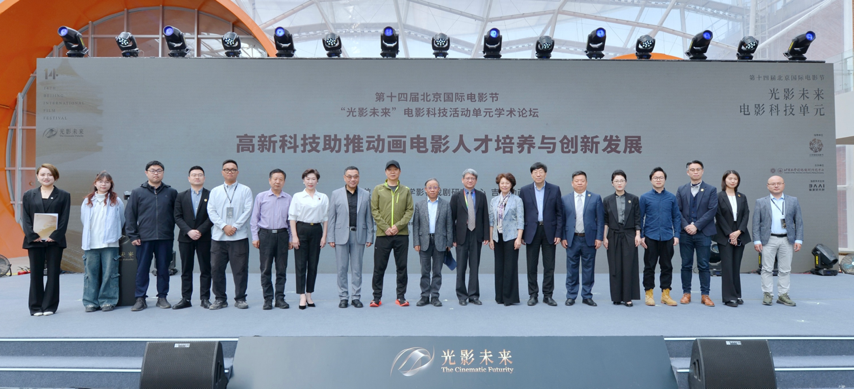
The academic activity titled "Tech-Driven Animator Training and Innovative Development"
On the morning of April 21, the third day of the event, an academic activity titled "Tech-Driven Animator Training and Innovative Development" was successfully held in the collaboration between Institute of Film, Television and Theatre, Peking University and Jilin Animation Institute. Prof. Chen Xuguang delivered the opening address, followed by guest speeches from Ma Li, President of the China Animation Association and former Director-General of the Publicity Department at the National Radio and Television Administration; Ding Yaping, President of the Chinese Collegial Association for Visual Art, Research Fellow at the Chinese National Academy of Arts, and Editor-in-Chief of the Journal of Art Communication; Li Daoxin, Professor, Vice Dean of the School of Arts, Peking University, and a scholar included in the Changjiang Scholars Program; and Liu Xin, Professor, Vice Chairman of Jilin Animation Institute, and Vice President of Jilin JAI Cultural Arts Group Co., Ltd. During the academic lecture session, Prof. Liu Zhenhua, Professor and Executive President of Jilin Animation Institute, delivered a fascinating speech on the topic of "Integrated Academia, Research, and Industry: Cultivating Talents in Animation and Film". Sun Lijun, Professor, Vice President of Beijing Film Academy, and Dean of the China Animation Academy, shared his valuable insights on the integration of artificial intelligence and the future cultivation of film talents. Ding Yaping explored the correlation between cultural heritage and the shaping of artistic spirit in Chinese animated films. In addition, two roundtable discussions were held, focusing on the integration of technology and art from the perspective of "AI+" and the fusion of academia, research, and industry in fostering innovative animation talent. These in-depth dialogues, each lasting 50 minutes, stimulated participants' thinking and exploration of future development.
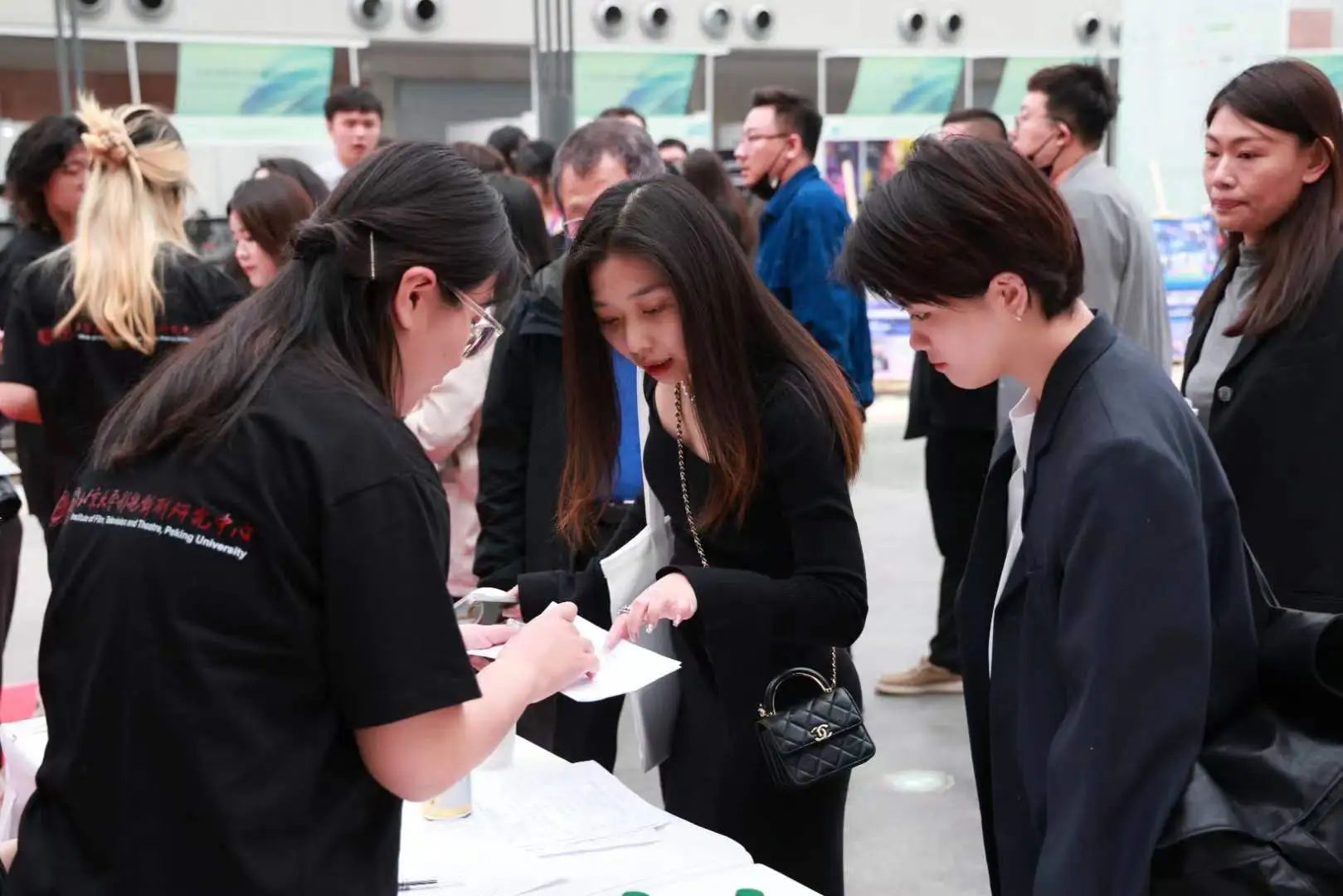
Scene of a forum
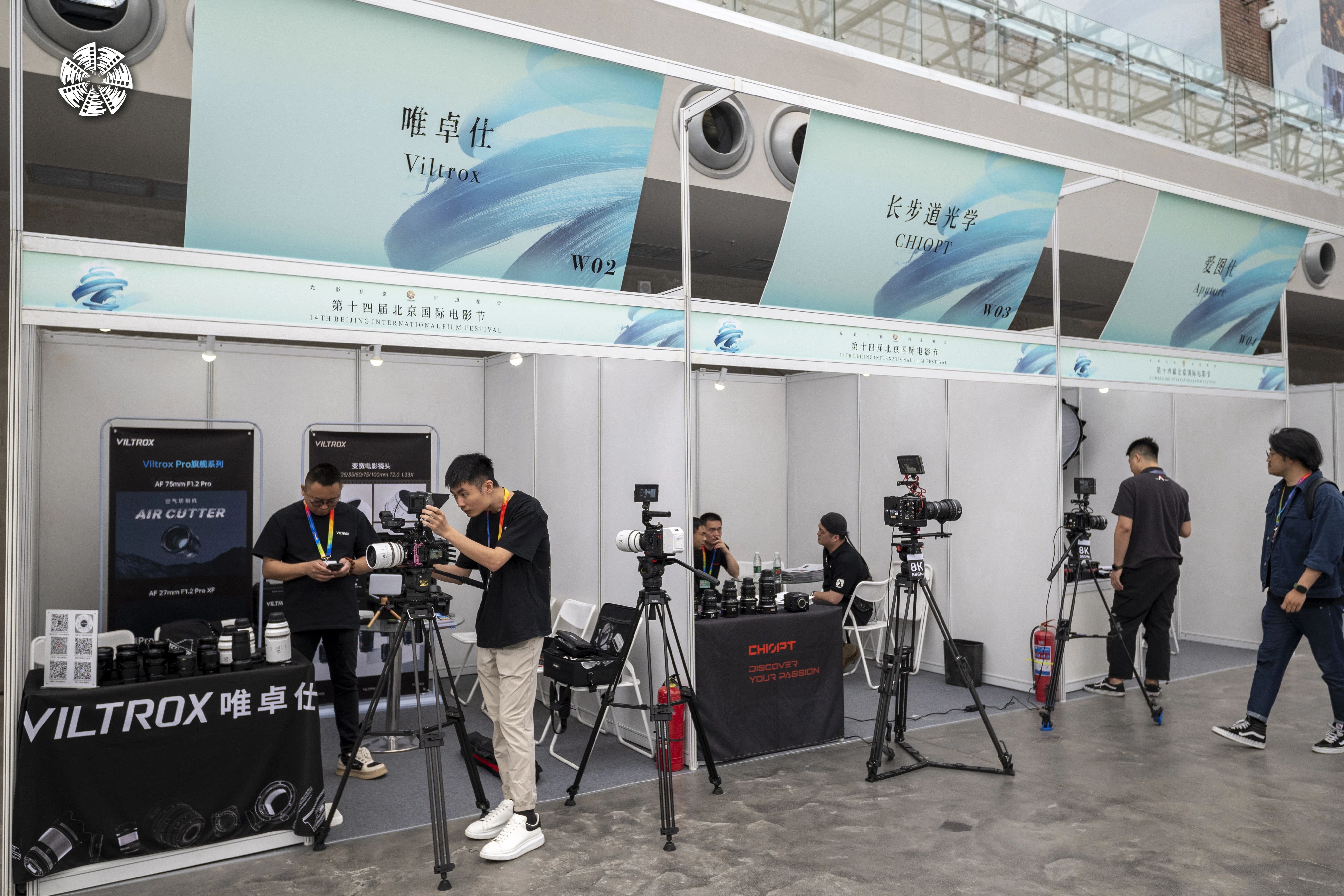
Picture of booths during the activity
In addition to the academic forums, the events on April 20 and 21 also included full-day activities featuring a film tech exhibition and a film-themed show. AI-enabled products made a compelling presence at "The Cinematic Futurity" Film Tech Exhibition, showcasing the power of AI large-scale models in creative assistance, digital humans, and generative content, all presented directly in front of the visitors. Meanwhile, "The Cinematic Futurity" Film Tech Exhibition joined forces across domains to create the "Wan You Yin Li" costume party, paying tribute to classic films and iconic characters. With its dazzling tricks, the event provided a constant stream of surprises, enchanting the audience who had come from various places. On the evening of April 21, the screening of animated films created by faculty and students from Jilin Animation Institute, including The Frog Kingdom Extreme Sports, garnered numerous praises from the audience in attendance.
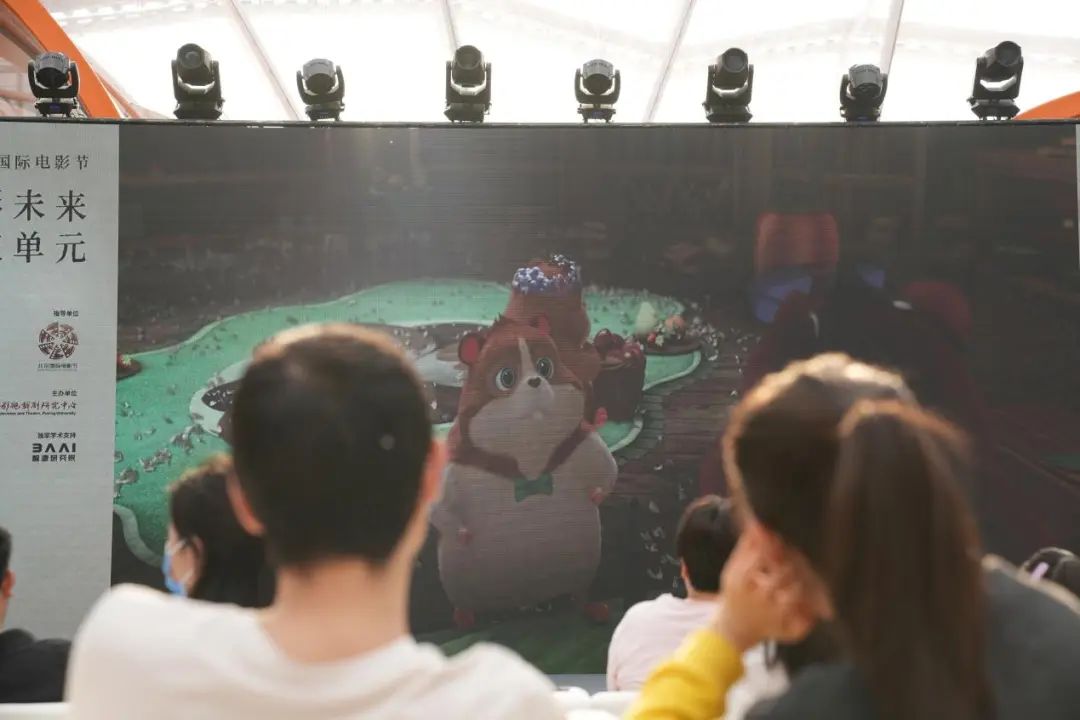
Scene of the screening activity
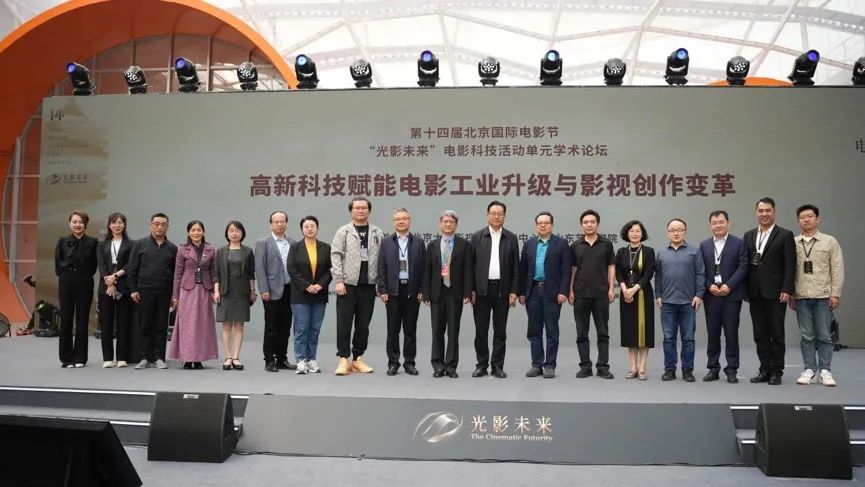
Scene of the academic activity titled "Tech-Empowered Upgrading of Film Industry and Reform of Film and Television Making"
On the morning of April 22, the academic event "Tech-Empowered Upgrading of Film Industry and Reform of Film and Television Making", co-hosted by the Institute of Film, Television and Theatre, Peking University, and the Shandong University of Arts, was held, where Prof. Chen Xuguang delivered the opening address, while Jiao Hongfen, President of the China Film Producers' Association and former Chairman of China Film Group Corporation, and Su Maoxing, Party Committee Member and Vice President of the Shandong University of Arts, also delivered their remarks. During the speech session, Jiao shared his insights on "technological advancements empowering film production, distribution, and screening". Also at the event, Hu Zhifeng, Vice President of the China Television Artists Association, Professor at Beijing Normal University, and a scholar selected in the Changjiang Scholars Program, delved into the impact of "technological innovations on film and television creation". Ren Peiran, a senior algorithm expert in computer vision at Alibaba TongYi Vision Intelligence Lab, delivered a presentation titled "Chasing the Dreams of Cinema: Collaborative AI Filmmaking Apprenticeship with the Community", discussing the applications of artificial intelligence in film production. Song Fagang, a professor at the Shandong University of Art, a young expert included in the Taishan Scholars Program in Shandong Province, and Vice President of the Shandong Literature and Art Critics Association, delved into the "breakthrough" and "establishment" of film aesthetics within the dimensions of technological transformations. He presented unique insights that contributed to the development of film aesthetics. Two roundtable discussions were held under the themes of "Film and TV Creation and Research in the Era of Advanced Technology" and "Transformation and Opportunities in Film Industry Driven by High-Tech". Over ten scholars and industry experts engaged in in-depth discussions on the fusion of technology and film, as well as the implications and prospects resulting from emerging technologies.
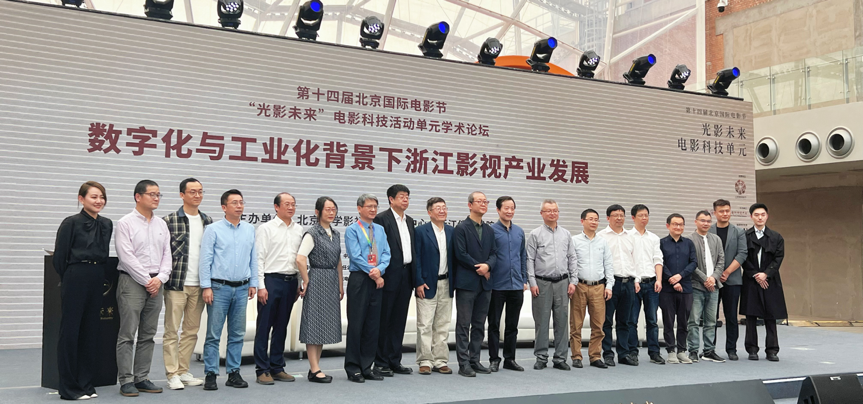
Scene of the forum titled "Development of Film and Television Industry in Zhejiang in the Context of Digitalization and Industrialization"
On the afternoon of April 22, a forum co-hosted by the Peking University Center for Film and Drama Studies and Zhejiang Media College with the theme "Development of Film and Television Industry in Zhejiang in the Context of Digitalization and Industrialization", was held. Prof. Chen Xuguang delivered the opening address, while the event was chaired by Hu Yue. At the event, Prof. Zhang Wei, Research Fellow and Executive Vice President of the China Film Critics Association, Wang Xiaofu, Vice President of the Zhejiang Television Artists Association, and Yao Zheng, Professor and Vice President of the Communication University of Zhejiang, also delivered speeches as distinguished guests. The subsequent academic speech session covered a range of topics, including Prof. Yin Hong's presentation on "Constructing the Film Industry System in the Digital Context", Prof. Zhang Yiwu's discussion on "Current Changes in the Film and TV Landscape and Opportunities in Zhejiang", and Yao Zheng's exploration of "Artificial Intelligence and the Industrial Upgrading of Cinema in Zhejiang". Following that, three academic forums took place, with each one focused on a specific theme. The themes included "Zhejiang Cinema in the Context of Artificial Intelligence and Industrial Upgrading", "Production of TV Dramas (Web Series) in Zhejiang in the Era of Internet and Artificial Intelligence", and "The Brilliance of Cinema and Literature in Zhejiang in the Age of Digital Intelligence (including a discussion on The Guest of Paradise)". A total of 17 guests from academia, industry, and the creative field shared their insightful opinions on these topics, bringing a successful conclusion to the four-day, seven-forum academic event.
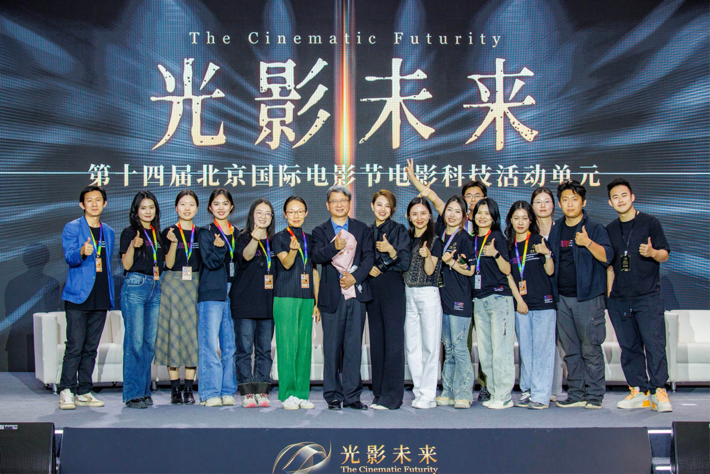
Closing ceremony of the event
During the closing ceremony of the event, Prof. Chen Xuguang delivered the closing remarks. In his concluding speech, he underscored the rapid development of artificial intelligence and advanced technologies, which have brought both opportunities and challenges to the development of the Chinese film industry. The four-day event brought together cutting-edge thoughts and innovative forces in the fields of film and technology. Through a main forum, roundtable discussions, industry salons, a tech red carpet, film screenings, and other forms, the event facilitated deep integration of the film industry with technological innovation. It also fostered in-depth dialogue and collaboration among the industry, technology sector, academic field, and education sector. He expressed his hope that in the era of artificial intelligence, Chinese films should prioritize a people-centered approach and strive for the seamless integration of film and technology. He emphasized the importance of fostering collaboration and exchange between academia and industry, as well as the development of a diverse and inclusive Chinese film school. Ultimately, he wished for the continued success of Chinese cinema and the rejuvenation of film art through the power of advanced technology.
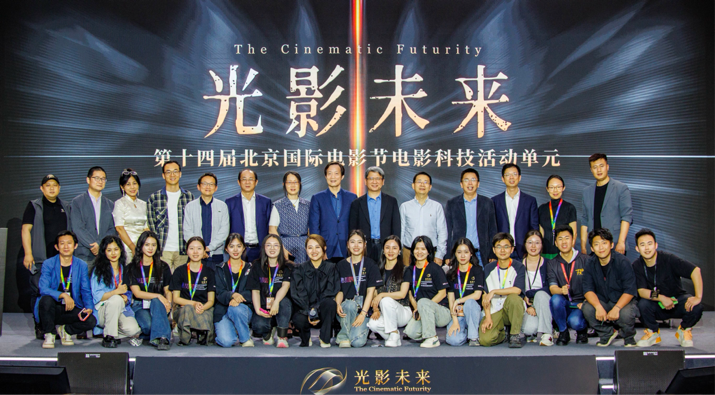
Closing ceremony of the event
The four-day "The Cinematic Futurity" Film Science and Technology Section as part of the BJIFF, came to a conclusion with resounding success.
Please download the Beijing International Film Festival APP for more interesting content

